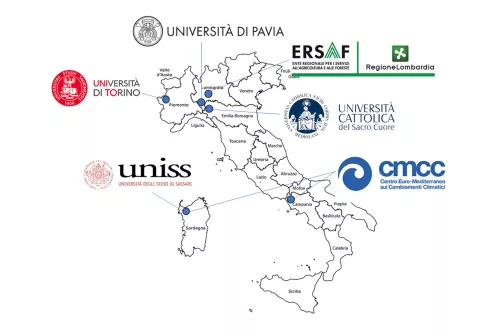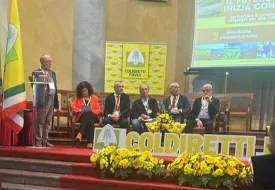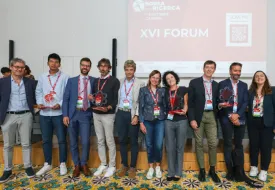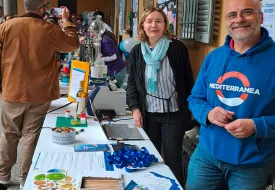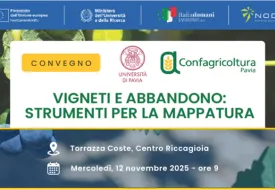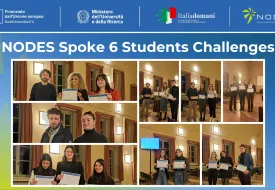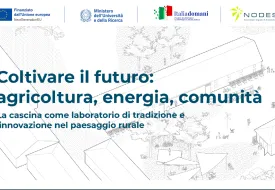Successful participation at “Borsa della Ricerca 2025”
Successful participation by Spoke 6 at the “Borsa della Ricerca” (BdR), held in Catania from October 1–3, 2025, an event by Fondazione Emblema. The Spoke took part in multiple one-to-one meetings with companies, a dedicated CrossRoads session, and the new initiative “Stories”.
In addition, the Academic PoC Biorestart 4.0 was awarded by GB Foods at the end of the pitch competition.
The Borsa della Ricerca is an event designed to foster connections among the world of university research (groups, departments, spin-offs), startups, companies, incubators, and investors (public and private) through an original interaction format that concretely supports technology transfer and research funding.
The CrossRoads was a moment of dialogue with R&D managers from relevant companies. At the event — which saw participation from companies such as CNH International, Deimos, Fine Foods, GBFoods, Gruppo Mezzacorona, Irritec, Isagro, Morato Group, Pfizer, and Star — the Spoke had the opportunity to showcase results achieved in terms of technologies (in the Flagship Projects, in projects funded with companies, industrial PhDs, and Academic PoCs) and to discuss next steps. Some of the companies had already taken part in last year’s CrossRoads and in the NODES Spoke 6 RoadShow held in April in Pavia, demonstrating strong interest in the Spoke’s research and innovation activities.
Dr. Lucia Marazzi (serving as Deputy Manager of the Spoke) took part in the Stories initiative, giving an interview to journalist Franco Ferraro, editor-in-chief of SkyTG24, which was broadcast live on Fondazione Emblema’s YouTube channel.
Finally, the Spoke brought to the BdR two business ideas from the Academic PoCs Biorestart 4.0 and DEMETRA, winners of the startup competition held in June. Both projects were able to manage a schedule of meetings (about ten each) with the companies in attendance.
Marco Carnevale (DEMETRA): “I spoke with Leonardo, Star, Isagro, Lutech, Nippon Gases, Love-Italy, and Rurinnova. The event enabled a fruitful exchange of ideas and allowed me to identify the real needs of industry. Opportunities emerged to use the simulator in training contexts in the agricultural sector (Rurinnova) and as an experiential system for tourism (Love-Italy).”
Enrico Doria (Biorestart 4.0, winner of the GB Foods prize): “We filled our meeting schedule right after registering on the BdR website and had the chance to speak with major companies in our sector of interest; I also got to meet several start-uppers, even from different fields, with whom we exchanged important and interesting information about how to navigate entrepreneurial environments. We had the opportunity to get our market proposal known. But the most important aspect concerns validation of the market itself: we prepared a series of ad-hoc questions to better understand the value of our USP, to confirm or adjust the SWOT of our products/services, and to validate our business model in general. After the event, we were contacted by some companies in the food sector and some in the cosmetics sector. We are now considering establishing ourselves as a startup and are preparing for a meeting with the GB Foods board in Spain.”
